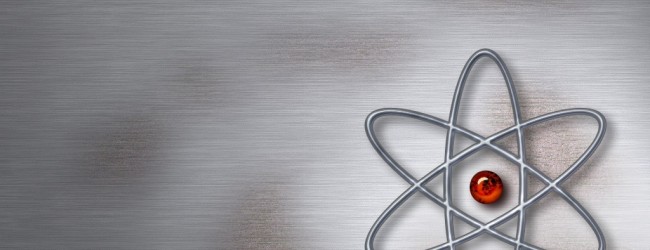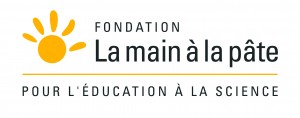
By Sameh Soror
After the first industrial revolution on the 16th Century, the world needed a workforce to fill the assembly lines and factory floors that were coming up every day. In response to the need for this workforce, the ‘industrial’ model of school and learning was created. In the Industrial model of the school, learning was teacher-driven, curriculum was focused on creating a large number of (somewhat) equally literate pupil, and conformity rather than individuality was emphasized. This model served and fed the industrial revolution very well.
As the age of science dawned in the 18th and 19th century in Europe, the industrial model of education was found to be deeply and inherently lacking. Unravelling the mysteries of science and addressing challenges required an archetype of a learner who could passionately follow his or her instincts, was deeply curious, and did not ‘conform.’ Eversince, the world has been in search of a system of science teaching, tailored to create thinkers, inquirers, and discovers, needed to fuel the scientific revolution of the day.
There is a global interest in improving science learning and promoting inquiry based science education (IBSE). IBSE approaches focus on student inquiry as the driving force for learning. Teaching is organised around questions and problems in a highly student-centered inquiry process. In IBSE, students learn through and about scientific inquiry rather than by teachers presenting scientific content knowledge.
The evolution of an idea
The idea of inquiry based education originated in the United States in 1992, when Leon Lederman – a Nobel Laureate (1988) – launched ‘Hands on’ – a science education program in Chicago. This was picked up by the French Académie des Sciences, in 1996, and they started  their program “La main à la pâte, (LAMAP),” which is currently one of the biggest IBSE programs in the world. LAMAP expanded its activities in more than 50 countries around the world. LAMAP comprises a series of modules, each dealing with a particular topic and related natural phenomena. For example, a waste module highlights the problem of waste produced by human activities and different possibilities of processing this waste. An energy module encourages students to design experiments, to highlight the different sources and forms of energy such as wind, sun, and falling objects,etc.
their program “La main à la pâte, (LAMAP),” which is currently one of the biggest IBSE programs in the world. LAMAP expanded its activities in more than 50 countries around the world. LAMAP comprises a series of modules, each dealing with a particular topic and related natural phenomena. For example, a waste module highlights the problem of waste produced by human activities and different possibilities of processing this waste. An energy module encourages students to design experiments, to highlight the different sources and forms of energy such as wind, sun, and falling objects,etc.
The Australian Academy of Sciences also runs a a very successful program for IBSE. The program is called primary connections. Primary connections links science with literacy. I had the pleasure to visit one school adopting this program last October. It is amazing to watch the  second and third year primary students performing very simple and naive experiments. For example, second year students were given worms and they were observing its activity when kept in room temperature compared to those kept in a fridge. In another experiment fourth year students were observing the change in the size of a stick as the sun moved. The joy children showed when they explained to us the experiments and their results, was untold. The program increases teacher confidence and competence in linking science with literacy, increases the awareness of science and engagement with learning for all students, and it also links schools, parents, and the community. The crucial element is the availability of qualified teachers to deliver on the goals on the programmes.
second and third year primary students performing very simple and naive experiments. For example, second year students were given worms and they were observing its activity when kept in room temperature compared to those kept in a fridge. In another experiment fourth year students were observing the change in the size of a stick as the sun moved. The joy children showed when they explained to us the experiments and their results, was untold. The program increases teacher confidence and competence in linking science with literacy, increases the awareness of science and engagement with learning for all students, and it also links schools, parents, and the community. The crucial element is the availability of qualified teachers to deliver on the goals on the programmes.
Such programs enable the students to discover the beauty of science and help them discover their abilities. They also inspire and motivate those who often find science boring in the classroom to learn and know using experience rather than reading. Bruce Albert, the former Editor in Chief of Science and President of American Association of Advancement of Science once noted the irony: “the penalties for “failing” schools in my home state of California are tragically wrong: Students who struggle with reading or math, are given double periods of reading or math drill, and the very set of activities that could excite them about school, is eliminated.”
IBSE in the Islamic World
Inquiry based science education, is not very commonly used within the Muslim World, primarily because of lack of appropriately qualified teachers, but also a lack of emphasis in these societies on science, in general. There are a few examples, such as, Malaysia which currently runs the Science Education Programme (SEP) of the International Academies Panel.
Pakistan is another example of an Islamic country which started an IBSE-LAMP program . It is a cooperation between Pakistan Science
Foundation (PSF) and the French Académie des Sciences and the French embassy in Islamabad. This program includes training of teachers of 27 schools by French experts. The trained teachers act as trainers for other Pakistani teachers in other schools and they start applying IBSE methods in their own schools.
In Malaysia, Science programs are deemed less attractive compared to other education pathways, such as the Arts. Over time, Malaysia has recognized that IBSE at primary level, is the way to increase the number of students in science pathways at secondary and tertiary levels, in order to meet the ambitious target of scientists and engineers that Malaysia has set for itself.
But still, the successful examples of IBSE in developing countries, generally, and in Islamic world, in particular, are very few and not highlighted as they should be. Dato Lee Yee Cheong, the Chair of SEP Program of the Inter Academies Panel (IAP) noted in his remarks, at the Conference of African European Mediterranean Academies for Science Education in Rome last May that, “IBSE is not doing well in developing countries, due to inability to engage the ministries of education fully in the program.”
Gateway to progress
No doubt, that science is able to create a better world. To exert its role, there must be a better understanding of science in the society. It has been proven that IBSE improves science literacy of school pupils. It enables them to both question and doubt thereby teaching curiosity. IBSE instills the willingness to explore new ideas and reliance on evidence and logic.
Despite this, though, IBSE is still not well recognized in the Islamic world, may be due to reluctance to change in the society and disinclination of governments. Islamic countries should capture the opportunities and expand applying IBSE programs in its primary and secondary schools.
If we want to develop, we must change. Improving science education is the only gateway for development in the Islamic world.
Sameh Soror is associate professor at faculty of pharmacy, Helwan University, Cairo, Egypt, the current co-chair of the global young academy and serves as a member of the global council of IAP science education program (SEP).
References:
*The images are courtesy the writer
You must be logged in to post a comment.